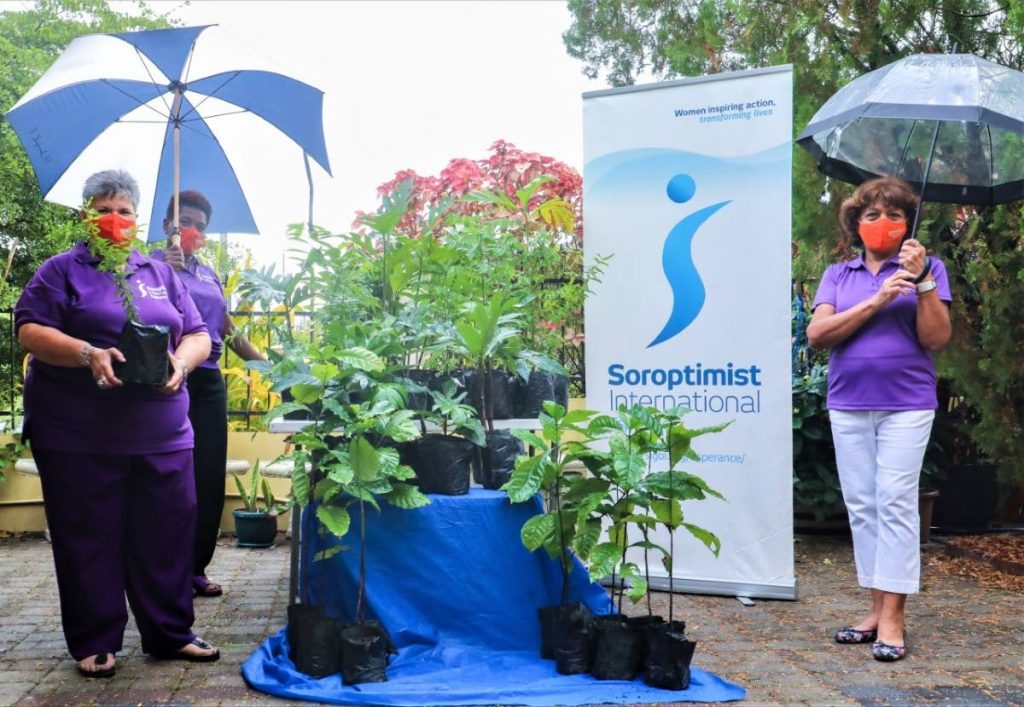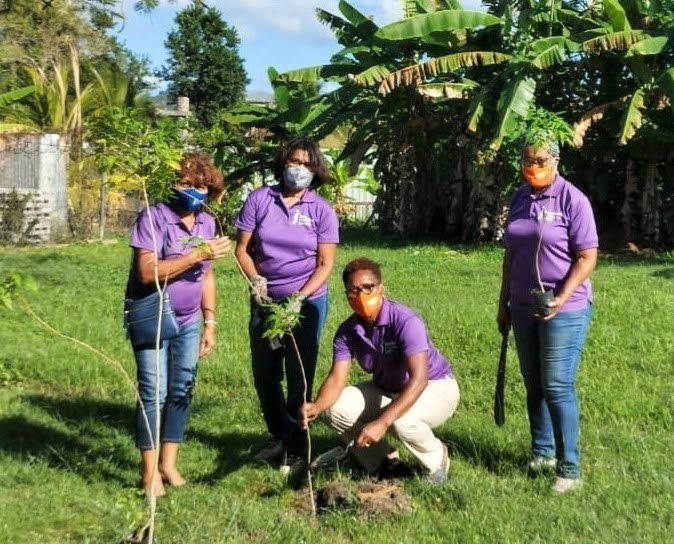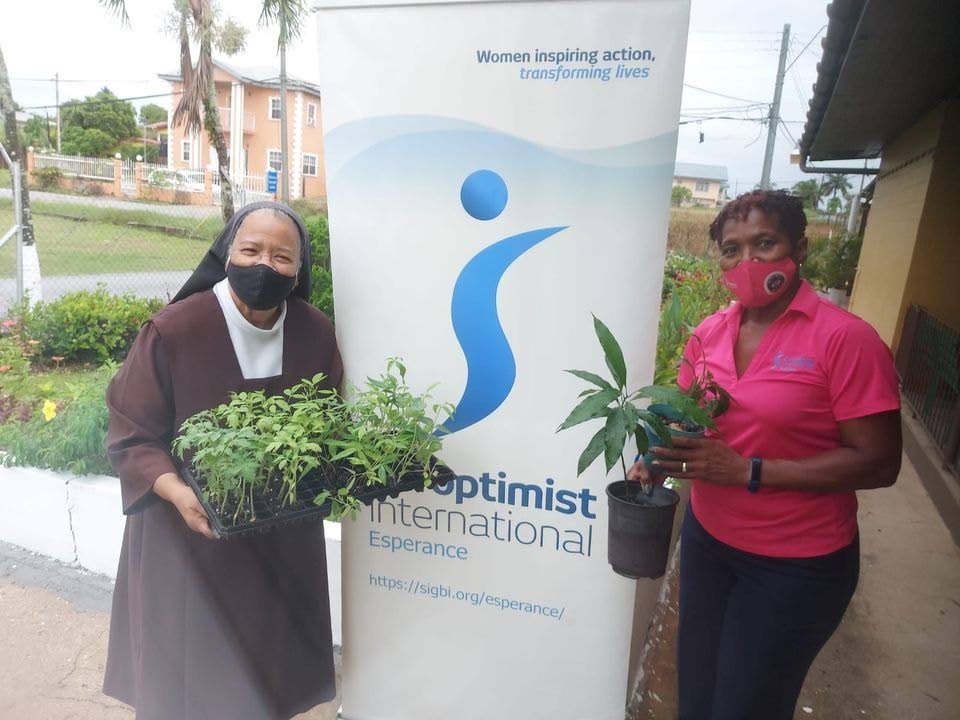Soroptimist International targets food security, climate change

Soroptimist International Esperance launched its Planting Trees—Hope for the Future project in response to the Soroptimist International call to Plant Trees for a Brilliant Future, to celebrate its centenary.
SI Esperance said that call, along with the 2021 UN Environmental Day theme of Ecosystem Restoration, made the club challenge itself to plant at least 100 trees in southwest Trinidad. The planting mission also factored in issues of community beautification, environmental sustainability, food security and climate change.
The club said the two-fold UN objectives of food security and environmental sustainability were addressed by planting trees that absorb carbon dioxide and provide oxygen, helping to clean the air.
The club partnered with the Division of Forestry at the Ministry of Agriculture which advised on the selection of trees based on the soils and topography of the area. Five community organisations were selected to assist with planting and maintenance. The partnerships with key stakeholders offered a greater guarantee of success, the club said in a media release.

A major stakeholder in the tree-planting exercise was the Palmiste Historical Society. Ornamental trees were planted as part of establishing an arboretum at the Palmiste National Park. The project included GIS mapping of the area and scanning the QR code for information on each tree. Additionally, the club purchased 50 food-producing trees such as breadfruit, coffee, chataigne, pomegranate, soursop and carambola for distribution.
The club said it identified the communities where women and girls were most at risk for experiencing food insecurity and either planted the trees or donated them for planting.
#CovidComfort – Growing Food for Hope has been a long-term project which began with the aim of enabling vulnerable women to grow their own food, lowering their food cost, encouraging healthier lifestyles through better food choices, and easing their financial situation by selling the excess produce, the club said. It has also partnered with Cardi (Caribbean Agricultural Research and Development Institute) and the Sure Foundation which aim to decarbonise Trinidad and Tobago and to support sustainable agriculture. SI Esperance said the two organisations espouse its ideals and its members are grateful for their generosity.

Trays of seedlings acquired, repacked by club members and delivered to LARMS (La Romaine Migrant Support Group); Lady Hochoy Home and The Halfway House. Individual women were also given smaller quantities of seedlings with their food hampers.
The club said the project hinges on the principle of the proverb, “Give a man a fish and you feed him for a day. Teach him how to fish and you feed him for a lifetime.”
Soroptimist International Esperance said it aims to educate, enable and empower, and its video Trash to Treasure was designed to trigger thoughts on the issue of climate change in the young and not so young. This video created by the multitalented Hope Pollonais was shown in classes locally and viewed around the world, generating 18,000 views. The club’s Facebook page is continuing a campaign to encourage readers to reduce, reuse and recycle and to green the planet in order to mitigate against climate change. SI Esperance is challenging everyone to think of ways to personally change trash to treasure and act now in so doing.


Comments
"Soroptimist International targets food security, climate change"